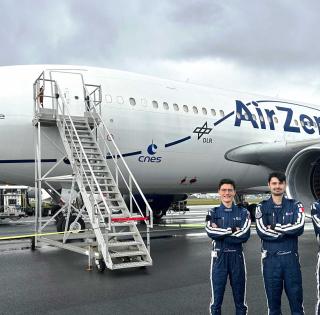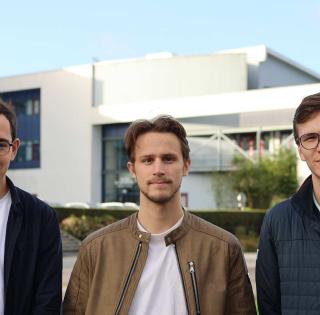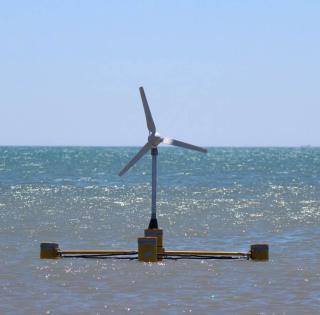
What made you choose this programme?
After my baccalaureate, my parents wanted me to take a preparatory course. But I knew it wasn’t for me. I've always been interested in computers and electronics, so it was only natural that I chose to enrol in an Electrical Engineering and Industrial IT University Technical Diploma in Brest. I then got into the ENSTA Bretagne, my first choice.
How did you find your apprenticeship placement?
I looked for a co-operative contract in 2020, during the Covid-19 crisis. I mainly applied to local companies, but it was very difficult given the health situation. The economy was slowing down at the time and companies were uncertain about their future. Thanks to the help of my friends and family, I found an apprenticeship placement at 4MOD Technology in Nantes.
What were your main tasks and responsibilities during your three-year placement?
During these three years, I developed embedded software for various microcontrollers used in embedded systems. These embedded systems were mostly connected objects. My day-to-day work consisted of being given a project and an electronic board, and then developing code in response to the request, often in the C programming language.
What was your end-of-study projet about?
During my end-of-study project, I worked on a data collection and analysis server designed to improve production performance.
My company has a unit in Tunisia that manufactures electronic products, more specifically the electronic boards that go into them. Before assembling the product (electronic board, plastic casing, batteries, and so on), the electronic boards are tested to make sure they work properly. There is a test bench at the end of the production line (a tool for testing the electronic boards). Once the test is complete, the test bench generates a summary file containing information about the board that has been tested, such as serial numbers and test results.
To do this, the data must be processed and there are several possible solutions. And so I chose to develop a data processing server, which uses the processed data to implement preventive and corrective actions to improve production.
Where do you work now? And can you tell us a bit about your work?
I'm working for the same company in Nantes, but now I'm on a permanent contract. Firstly, I will present my end-of-study project to a technician, who will then integrate it into the production chain. After that, I will be working on developing embedded systems for remote controls, which means integrating an accelerometer, energy harvesting and even developing Bluetooth technology.
What do you like most about working with embedded systems?
I really like the hardware side of things (software development), developing a programme that makes the board react, but also the practical side: handling equipment, such as oscilloscopes, multimeters, soldering irons, etc.
Where do you see yourself working in 10 years time?
In 10 years’ time, I’d like to start my own business repairing electronic boards.
I did an internship in this type of company during my studies at the University Technology Institute, which I really enjoyed, and I realised that this type of company is quite rare. In most cases, companies tend to replace electronic boards rather than repair them.
Ideally, I'd like to specialise in agriculture, an area I know well and which is particularly close to my heart because my family work in the sector.
Do you have a message for secondary school and university students?
Sign up for an apprenticeship and start building your network!










